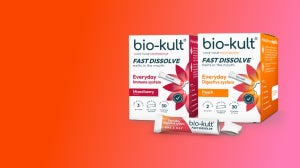
What is the immune system?
1. Eat the rainbow2. Exercise3. Stress4. The gut microbiome5. Sleep well6. Take a walk7. Vitamins and mineralsKey Takeaways
Our immune system is an incredibly complex system involving many different parts of the body working synergistically together. On duty 24 hours a day, 7 days a week, 365 days a year, it’s no wonder it can become overworked at times.
And so the idea of boosting your immune system can be appealing, with the internet full of wonderful suggestions, particularly on how to boost your immune system naturally. But is it actually possible to boost your immune system and is it really a good thing?
What is the immune system?
We have two types of immunity. Innate immunity is the natural protection that we are born with and is our first line of defence. On discovering an intruder, our innate response will act quickly to try and repel it, perhaps by producing extra mucus or by turning up our internal thermostat to attack it with a fever.1
The second type is our adaptive immunity which is the protection that we gain throughout life as we are exposed to, or vaccinated against, diseases. The adaptive system can spot enemies and produce specific weapons (or antibodies) that destroy and eliminate the intruder from the body.1
It can take the adaptive system 5 to 10 days to identify the necessary antibodies and produce the amount needed to attack the intruder successfully. During that time, the innate system does its best to keep the intruder in check and prevent it from proliferating.
So, can we boost our immune system, naturally or otherwise? The simple answer is: No, innate immunity can’t be boosted, and you wouldn’t want it to be. If the innate response was stimulated, you would likely feel constantly unwell.2 However, the efficiency of the adaptive response can be increased via, for example, vaccinations.2
So what you actually need is for your immune system to be balanced, not boosted, because too much of an immune response is just as bad as too little a response. Therefore, rather than waiting for the first signs of a sniffle, it is probably best to take preventative steps to support and balance the immune system throughout the day.
So what steps can you take? Here are a few tips to help your immune system stay healthy.
1. Eat the Rainbow
With meal deals and packed lunches often consisting of sandwiches and crisps, many people’s lunches are distinctly beige and lacking in nutrients.
Did you know the different colour pigments in fruit and vegetables actually indicate the different health properties they possess?3 For example, orange fruit and vegetables are high in beta-carotene (the pre-cursor to vitamin A), whilst purple varieties contain proanthocyanidins, which are powerful antioxidants.
As the immune system needs a variety of different nutrients to stay healthy, eating a rainbow of different colours every day is important.4 Include plenty of fruits and vegetables, healthy proteins such as grass fed or organic meat and plant proteins such as lentils and quinoa, healthy fats from nuts, seeds or oily fish and whole grains in your diet whilst limiting processed foods and added sugars.
Eating this way will provide multiple nutrients that support optimal immune function.5,6 So ditch the soggy sandwiches and instead pack a fresh rainbow salad topped with good quality protein.

2. Exercise
Fitting exercise around work, family and social life can be tricky. Some people find they are more likely to make it to the gym or an exercise class if they go straight from work (so they don’t get side-tracked by things at home).
Although if you do fall ill it’s best to rest up until you are feeling better, regular moderate exercise has been shown to have immune-enhancing effects particularly on the respiratory tract and to have a positive impact on the gut microbiome in some individuals.7–9
Why not join MoveGB to gain the benefits of a variety of exercise classes in your local area so you can decide what type of exercise you like best?

3. Stress
Short-term stress appears to negatively affect the immune system10 and chronic long-term stress can decrease the number of white blood cells available to our immune system. In studies there is evidence that in times of stress the body adapts and prepares our immune system for possible invading intruders, injury, or both.10
So aim to incorporate some stress management techniques into your everyday life such as meditation, yoga, time in nature, journaling and creating or enjoying art and aim to get those stress hormones under control.
4. The Gut Microbiome
The gut microbiome consists of trillions of microorganisms that live in the intestines12 and there has been a huge amount of research into whether the microbiome plays a role in immune function.
If you consider that your gut is part of the first line of defence between the outside world and your internal body, it makes sense that the majority of our immune system would guard this particular area. In fact 70-80% of immune cells are present in the gut and are constantly communicating with the gut microorganisms which play an essential role in supporting our immune system.13 They provide this support by inhibiting invading microbes, maintaining the integrity of the gut lining and its mucous layer and by helping to regulate immune function throughout the body.13
Our diet plays a large role in determining what kinds of microbes live in our intestines. A high-fibre plant-rich diet with plenty of fruits, vegetables, whole grains and legumes appears to support the growth and maintenance of beneficial microbes.
Some of our helpful microbes break down fibres into short chain fatty acids (SCFAs), which include acetate, propionate and butyrate. These three main SCFAs perform very different but important roles in the body, such as providing an energy source for the intestinal cells.14 However, not all fibres are food sources for our gut microbes, it is specifically fermentable fibres which we need for our gut microbes to produce SCFAs. Therefore, a diet containing live bacteria and fermentable fibres may be beneficial. Traditionally fermented foods include sauerkraut, kimchi, kefir, kombucha, miso and live yoghurt whilst fermentable fibres include garlic, onions, leeks, asparagus, Jerusalem artichokes, bananas and seaweed. However, a more general rule is to eat a variety of fruits, vegetables, beans and whole grains for both dietary and fermentable fibres.
Our gut microbes also produce various vitamins for us. For example, approximately 20% of our gut bacteria can produce vitamin B12 (an important nutrient for the immune system: see Tip 7), and more than 80% of our gut bacteria require vitamin B12 for their metabolic reactions.16
Why not start your day with oats and fruit topped with kefir (a yoghurt-like milk drink teeming with beneficial microorganisms), add a portion of sauerkraut or kimchi to your lunch and dinner, and switch alcohol (which can affect the balance of microbes in the gut and depress the immune system17) for kombucha, a delicious slightly fizzy fermented tea drink.
Begin the process of making fermented foods in the autumn so they will be ready in time for when the colder weather hits. It may also be beneficial to take a live bacteria supplement if fermented foods aren’t your thing.
5. Sleep Well
Sleep and the immune system are closely linked. For example, studies have shown that participants who had a good night sleep after receiving vaccinations created more protective antibodies than those who were sleep deprived, indicating a specific role of sleep in the formation of our immunological memory.18
Prolonged periods of not getting enough sleep are therefore likely to have a negative effect on immune function. Also, following on from Tip 4, the microbiome may be involved in our sleep. A disturbed night’s sleep and short sleep duration have both been associated with imbalanced gut microbes19 and growing evidence suggests that our gut microbes can affect the quality of our sleep.20
Aim for seven to eight hours of sleep per night for optimal immune function. Following a good sleep hygiene routine such as ensuring the room is dark, quiet and set at a comfortable temperature, banning electronic devices from the bedroom, avoiding large meals, caffeine and alcohol in the last few hours before going to bed, using blue light filters on screens and keeping lighting dim in the evenings, whilst sticking to a regular bedtime routine could help improve the quality and duration of sleep.
Through the longer hours of darkness in the autumn and winter months, aim to get into bed earlier and venture outside during the daylight hours to help support your natural circadian rhythm, balance your gut microbes and support your immune system.

6. Take a Walk
It’s easy to slip into the bad habit of eating lunch in front of your computer at your desk. However, not only is this bad for digestion, it also means you could be missing out on vital opportunities to support your immune system.
Getting outside and taking a walk each lunch break is likely to offer a number of health benefits, such as increasing vitamin D levels (another crucial nutrient for the immune system) and, if you have access to a green space close by, exposing your immune system to a wider variety of beneficial microorganisms from the environment to help keep it strong and healthy. Sunlight has an important effect on immune cells and immune function, therefore supporting our overall health. The precise mechanisms of how sunlight affects our immune function is unclear, however enhanced vitamin D synthesis is likely to play a role.21
7. Vitamins and Minerals
Various vitamins and minerals can help to support our immune system, such as Vitamin B12, vitamin C, vitamin D, zinc and selenium. Vitamin B12 is an important nutrient for the immune system as it is involved in DNA synthesis and deficiency has been shown to impact the ratio and activity of certain immune cells.22 It’s often difficult to achieve adequate levels of vitamin D and vitamin B12 from food and lifestyle alone (especially as you age or if you are on a plant-based diet), so keeping regularly topped up, with a supplement that targets your immune system if needed, is therefore recommended.
Key Takeaways
Our take-away message has to be – do not boost your immune system, instead keep it healthy and balanced, perhaps by using some of these tips.
Although many questions remain about the function of the immune system, it is clear that consuming a healthy diet, regularly exercising, getting adequate sleep, catching some sun, looking after your gut microbiome and reducing stress will go a long way to ensuring your immune system is maintained.
We would always recommend consulting with your doctor, or a qualified healthcare professional, before making any significant changes to your diet or lifestyle.
References
1 Vaillant AAJ, Sabir S, Jan A. Physiology, Immune Response. StatPearls 2022; published online Sept 26. https://www.ncbi.nlm.nih.gov/books/NBK539801/ (accessed Feb 24, 2023).
2 Willem Van Der Laan J, Lazado CC, Ghezzi pietro P, Cassa Macedo A, Oliveira Vilela de Faria A, Ghezzi P. Boosting the Immune System, From Science to Myth: Analysis the Infosphere With Google. Frontiers in Medicine | www.frontiersin.org 2019; 1: 165.
3 Lu W, Shi Y, Wang R, et al. Antioxidant Activity and Healthy Benefits of Natural Pigments in Fruits: A Review. Int J Mol Sci 2021; 22. DOI:10.3390/IJMS22094945.
4 Nutrition and Immunity | The Nutrition Source | Harvard T.H. Chan School of Public Health. https://www.hsph.harvard.edu/nutritionsource/nutrition-and-immunity/ (accessed Feb 24, 2023).
5 Christ A, Lauterbach M, Latz E. Western Diet and the Immune System: An Inflammatory Connection. Immunity 2019; 51: 794–811.
6 Childs CE, Calder PC, Miles EA. Diet and Immune Function. Nutrients 2019; 11. DOI:10.3390/nu11081933.
7 Nieman DC, Wentz LM. The compelling link between physical activity and the body’s defense system. J Sport Health Sci 2019; 8: 201–17.
8 Nieman DC, Henson DA, Austin MD, Sha W. Upper respiratory tract infection is reduced in physically fit and active adults. Br J Sports Med 2011; 45: 987–92.
9 Jones AW, Davison G. Exercise, Immunity, and Illness. Muscle and Exercise Physiology 2018; : 317–44.
10 Segerstrom SC, Miller GE. Psychological Stress and the Human Immune System: A Meta-Analytic Study of 30 Years of Inquiry NIH Public Access. Psychol Bull 2004; 130: 601–30.
11 Role of the gut microbiota in nutrition and health. DOI:10.1136/bmj.k2179.
12 Wiertsema SP, van Bergenhenegouwen J, Garssen J, Knippels LMJ. The Interplay between the Gut Microbiome and the Immune System in the Context of Infectious Diseases throughout Life and the Role of Nutrition in Optimizing Treatment Strategies. Nutrients 2021; 13: 1–14.
13 Rowland I, Gibson G, Heinken A, et al. Gut microbiota functions: metabolism of nutrients and other food components. Eur J Nutr 2018; 57: 1–24.
14 Hossain KS, Amarasena S, Mayengbam S. B Vitamins and Their Roles in Gut Health. Microorganisms 2022, Vol 10, Page 1168 2022; 10: 1168.
15 Sarkar D, Jung MK, Wang HJ. Alcohol and the Immune System. Alcohol Res 2015; 37: 153.
16 Besedovsky L, Lange T, Born J. Sleep and immune function. 2011. DOI:10.1007/s00424-011-1044-0.
17 Matenchuk BA, Mandhane PJ, Kozyrskyj AL. Sleep, circadian rhythm, and gut microbiota. Sleep Med Rev 2020; 53. DOI:10.1016/J.SMRV.2020.101340.
18 Smith RP, Easson C, Lyle SM, et al. Gut microbiome diversity is associated with sleep physiology in humans. 2019. DOI:10.1371/journal.pone.0222394.
19 Phan TX, Jaruga B, Pingle SC, Bandyopadhyay BC, Ahern GP. Intrinsic Photosensitivity Enhances Motility of T Lymphocytes OPEN. Nature Publishing Group 2016. DOI:10.1038/srep39479.
20 Tamura J, Kubota K, Murakami H, et al. Immunomodulation by vitamin B12: augmentation of CD8+ T lymphocytes and natural killer (NK) cell activity in vitamin B12-deficient patients by methyl-B12 treatment. Clin Exp Immunol 1999; 116: 28.









